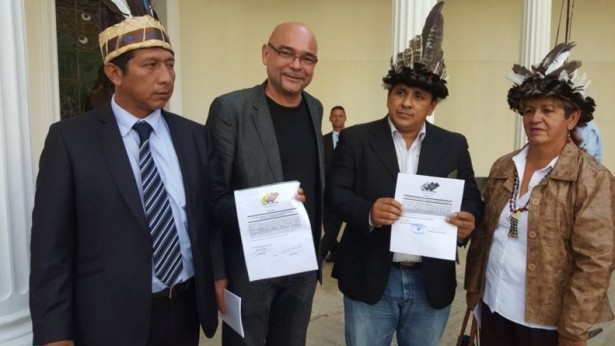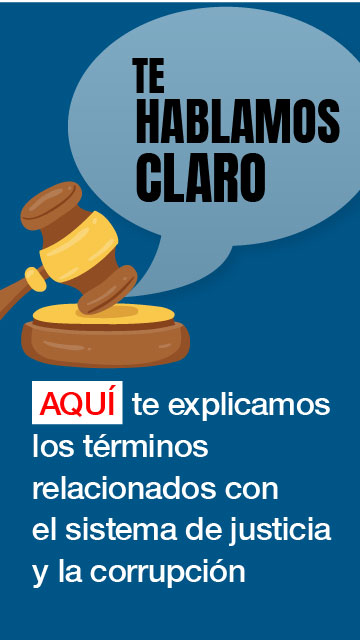Venezuela was left without Legislative Branch. That is the practical effect of the last judgment passed on Friday 2 September by the Constitutional Chamber of the Supreme Tribunal of Justice (TSJ), which resolved to declare «manifestly unconstitutional and, therefore, absolutely void and lacking any validity and legal effectiveness, the acts emanated from the National Assembly, including laws that are sanctioned.»
The main interpreter of the Magna Carta, in a joint presentation, took this decision considering that the parliament incurred in «contempt» to incorporate last 28 July the three deputies representing the Amazonas state (south of the country), whose swearing-in had been blocked by the TSJ’s Electoral Chamber on 30 December 2015 in response to a lawsuit filed by the United Socialist Party of Venezuela (PSUV).
The head of the National Assembly, Henry Ramos Allup, responded that «we will not abide by any decision of the TSJ, or any power that violates the Constitution.» The legislator stressed that «we are obliged to maintain the Constitution and oppose to abide by any act of public power that violates it.»
The leadership of the Judicial Branch has so far issued some 25 rulings against the parliament, restricting its powers and constitutional functions. As in almost every case, this time the Justices spoke out before the President of the Republic’s request, Nicolás Maduro, who asked them on 19 August to review the legality of the partial reform of the Organic Law that Reserves the State the Exploration and Exploitation Activities of Gold, approved by the parliament on 9 August.
What is the novelty of this last judgment? That the Constitutional Chamber does not stop to evaluate the rule in question, but qualifies as «absolutely null» all the measures that are adopted by the parliament. Even worse, it warns parliamentarians that their actions will generate «constitutional, criminal, civil, administrative, disciplinary, ethical, political and social responsibilities and sanctions.»
Maduro announced last week that he had a decree ready to lift the deputies’ immunity. «No one here will be protected by parliamentary immunity to commit crimes,» said the head of state. In its decision, the TSJ orders to send a copy to the «Office of the Attorney General in view of any criminal offenses that may have committed and be committing» by the legislators.
Key majority
The opposition not only won the parliamentary elections of 6 December 2015, but managed to get exactly 2/3 of the parliament, grabbing 112 seats. With this qualified majority, the Democratic Unity Roundtable (MUD) can sanction organic laws, approve a constitutional reform bill, remove the members of the Supreme Tribunal, appoint the rectors of the National Electoral Council and even promote the installation of a National Constituent Assembly, among other things.
The PSUV contested the results of the elections in the Amazonas state, arguing that the state governor, Liborio Guarulla, had committed «fraud» for incurring in the practice of «vote buying». The Electoral Chamber admitted the chavismo lawsuit and left without effect the proclamation of three deputies of the MUD, whose parliamentary fraction was momentarily reduced to 109 members.
The National Assembly was installed on January 5 without the challenged representation, as ordered by the TSJ that threatened to declare the parliament in contempt if it did not respect its determination. «Sometimes you have to bend in order to not to split,» Ramos Allup said at the first session, to justify the opposition’s attitude towards the ruling.
Tired of waiting for the resolution of this conflict, the opposition incorporated the legislators of Amazonas on 28 July. «The TSJ had to respond on 12 February and so far has not spoken out. There is no doubt that there was denial of justice in this case», said the parliament’s second vice-president, Simon Calzadilla. The Judicial Branch still does not fix its definitive position on the litigation of Amazonas, but using this file has just tied hands and feet of the National Assembly.
Extract of the Judgment
The action taken by the National Assembly, not only to proceed to a new swearing in and incorporation of citizens as deputies of that parliamentary body, in contravention of the express provision contained in a judicial ruling, but also to continue ignoring the provisions of a judgment issued by this Supreme Tribunal through its Electoral Chamber, in which the nullity of any act emanating from that parliamentary body is clearly determined, in contempt and rebellion to the provisions of that decision, that is to say, with the incorporation of citizens Nirma Guarulla, Julio Haron Ygarza and Romel Guzamana as deputies of the National Assembly, translates into the absolute nullity of these acts thus emanated, for the express contravention of a judicial mandate, which of course violates and clearly ignores the notion of Democratic and Social State of Law and Justice enshrined in article 2 of the Constitution, the right to effective judicial protection (article 26) and the provisions of article 253 of the Constitution; resulting, therefore, those acts absolutely void and without any legal validity and effectiveness (…)».









